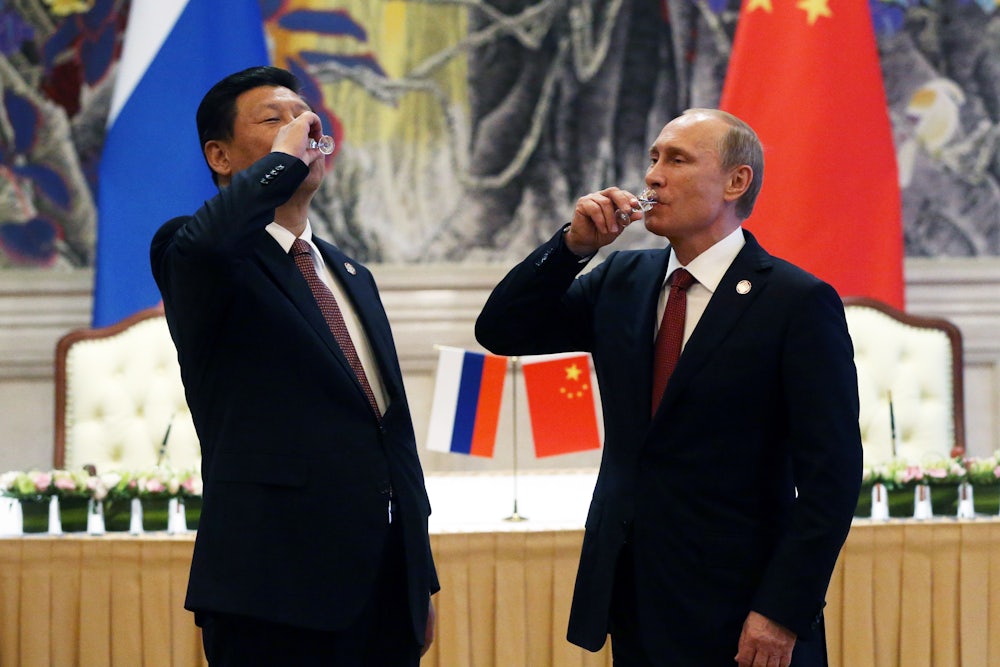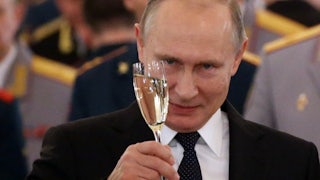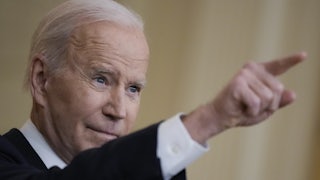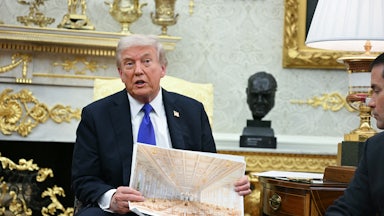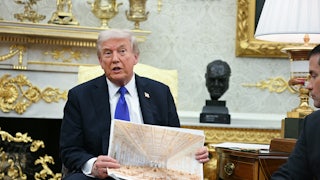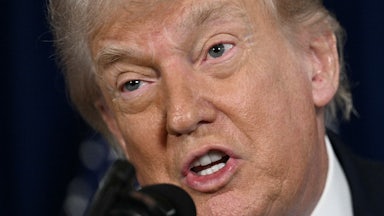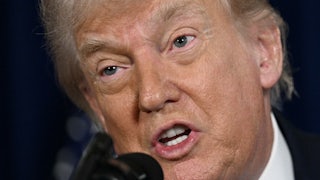On Friday morning, President Joe Biden spent close to two hours speaking with Chinese President Xi Jinping to convince and cajole him into rejecting Russian pleas for military and economic assistance—and publicly condemning Russian President Vladimir Putin’s unprovoked invasion of Ukraine.
We don’t yet know the details on how that went, beyond the usual diplomatic bromides, but the Biden-Xi call reflects the increasingly difficult position in which China finds itself over its relationship with Russia. While the war in Ukraine has been a strategic calamity for Moscow, it’s increasingly become a numbing headache for Beijing. Torn between a strategic decision to strengthen ties with Russia as a bulwark against the West and maintaining its image as a reasonable and constructive international actor, China has found itself caught in the middle.
While China may not be happy about the position it is in due to Russia’s strategic incompetence, those hoping that Xi will break with Putin are likely to be disappointed. Maintaining its close relationship with Moscow—even in its increasingly weakened and isolated form—beats the alternative of losing perhaps its most important international partner.
In the three weeks since Russian troops crossed the Ukrainian border, Chinese officials have struggled to stake out a neutral position on the invasion, calling for restraint on all sides and even refusing to label the conflict a war. Writing in The Washington Post this week, Qin Gang, the Chinese ambassador to America, declared in anodyne language typical of the China response, “Neither war nor sanctions can deliver peace.”
Yet at the same time, on Chinese state television, Russia’s propaganda about the war is being fully embraced, as Russian officials have been given ample opportunity to spread misinformation with little pushback or criticism.
According to Sheena Chestnut Greitens, an associate professor at the LBJ School of Public Affairs and China expert, there is also no evidence that Beijing is backing away from Russia. If anything, says Greitens, “China has pretty clearly doubled down.”
Greitens notes that in international organizations, China initially abstained on votes regarding the conflict, including in the General Assembly’s condemnation of Russia’s actions. Now China is actively siding with Moscow, including in a recent symbolic vote in the International Court of Justice ordering Russia to “suspend” military operations in Ukraine. China was the only country on the court to vote alongside Russia.
According to Lyle Goldstein, director of Asia engagement at Defense Priorities, Xi’s tacit support for Putin and his ill-begotten military foray into Ukraine reflects the trajectory of relations between Moscow and Beijing over the past 20 years. “The two countries have developed a deep trust, not just at the top, but at all levels,” says Goldstein, “and it’s not going to be shaken by a momentary crisis.”
That bromance was sealed early last month when Putin and Xi met in Beijing on the eve of the Winter Olympics. The two leaders pledged an era of “friendship” between their two nations that “has no limits … and no forbidden areas of cooperation.”
Six weeks later, one might imagine that Xi
would have preferred to keep things casual with Putin rather than deciding to
go steady so publicly.
But Beijing appears to be making a different calculation. The cost of Russian military or political collapse would be so severe, says Greitens, that “[China] may be gradually more risk-acceptant to keep Russia afloat … as a counterweight to the United States and its partners.”
From a political perspective, China’s alliance with Russia serves as a bulwark in its increasingly fractured relations with the West and, in particular, the U.S. Russian assistance and support will also be essential if China ever goes to war with Taiwan.
But, Greitens joked to me, China’s rhetorical commitment to a partnership with Russia does not include “mutual economic suicide.” That’s because from an economic perspective, China’s relationship with Russia is small potatoes compared to its economic ties with the U.S. and Europe.
China’s trade with Russia amounts to $147 billion, a number that pales in comparison to the $657 billion it does in trade with the U.S. and the $828 billion in trade with the European Union.
China can only go so far in defying the EU and the United States, particularly with the added risk of international sanctions if it directly aids Russia in its war effort—a potentiality already raised by U.S. national security adviser Jake Sullivan. One can expect that Chinese companies will grudgingly abide by many of the international sanctions imposed on Russia for fear of finding their own business in the crosshairs of American officials.
There are also larger diplomatic considerations for Xi. While Putin has practically relished the opportunity to thumb his nose at international norms, China has long sought to portray itself as a reasonable and constructive global actor. Beijing actively participates in international fora and previously had a strong economic relationship with Ukraine. Moreover, China’s support for Russia flies in the face of rhetoric long espoused by Beijing about the sacrosanct importance of sovereignty, noninterference, and territorial integrity.
Nonetheless, charges of hypocrisy, short-term reputational harm, and even potential Western sanctions are unlikely to significantly change Xi’s strategic calculus.
Indeed, after Chinese officials met in Rome earlier this month with Sullivan, the Chinese newspaper Global Times, which Goldstein argues frequently reflects elite Chinese thinking, issued a blistering editorial.
The paper labeled the U.S. “the initiator of the Ukraine crisis” and blasted Sullivan for suggesting there would be consequences for China if it helped Russia evade international sanctions. Washington, the paper said, “wants the world to be a ‘tool man’ for its expansion of strategic interests, which makes one wonder, where does the United States get its confidence? … If Washington wants to forcibly tie Sino-U.S. relations to the Russia-Ukraine crisis, it is obviously ‘deviate,’ and it will definitely be disappointed.”
Such harsh rhetoric should, perhaps, not come as a surprise. U.S.-China relations have been on a downward spiral for several years, one exacerbated by the unilateral trade war launched by President Trump in 2018. Things have hardly improved, however, since President Biden took office. Indeed, it was only last year that Biden got fellow NATO countries to issue a communiqué characterizing “China’s growing influence and international policies” as a “challenge” to be addressed by the alliance.
Beijing is hardly blameless for the current tensions, as exemplified by its increasingly hostile tone toward Taiwan and its appalling human rights abuses. But there’s no mistaking the fact that China has ample reason to feel threatened by the West and view Russia as an essential strategic partner, particularly in an international system still dominated by the U.S.
So China is highly unlikely to hand the U.S. a diplomatic and political victory by acceding to Washington’s demands regarding Russia—or even worse, countenance a Russian military or economic collapse.
Such an outcome, argue both Greitens and Goldstein, would be simply unacceptable for China. Propping up Russia and deepening its relationship with a nation that is increasingly seen as a pariah state is also a less than ideal situation. But for now, at least, China seems inclined to stick to the principle that the enemy of my enemy is my friend.
